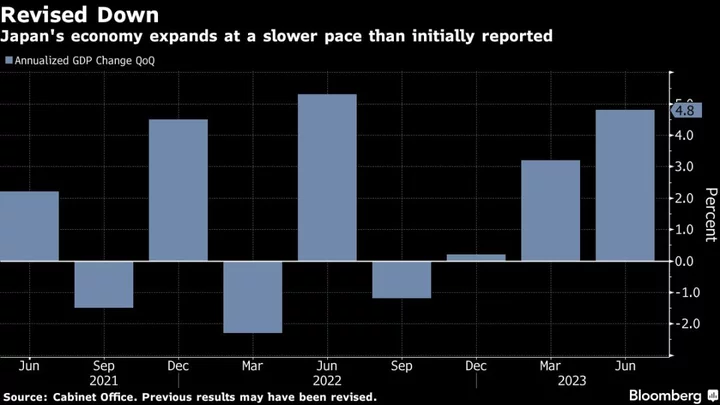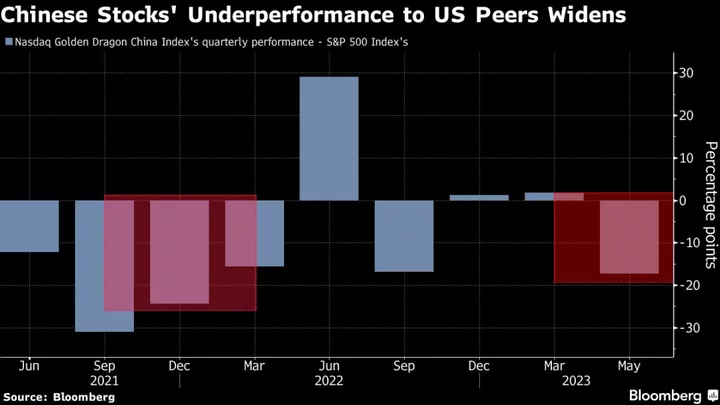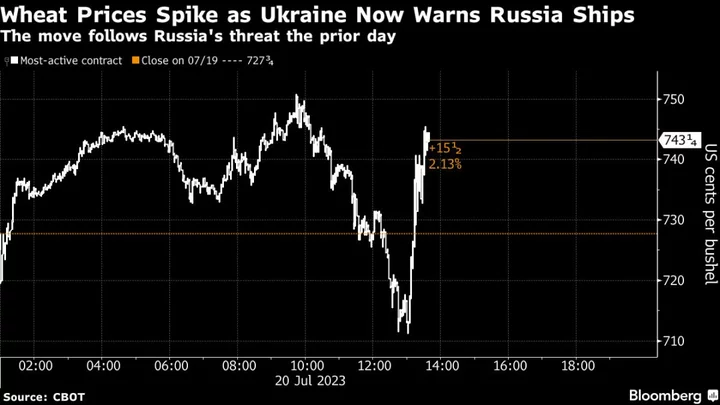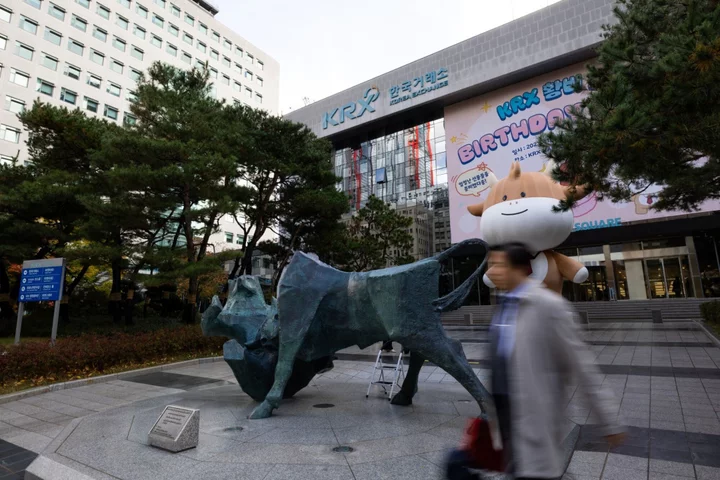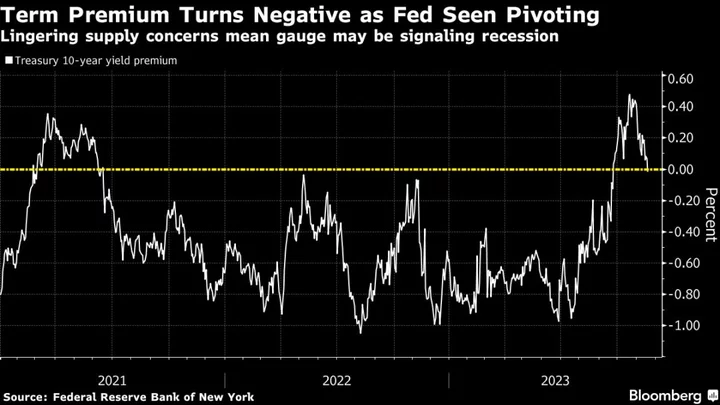Egypt’s dollar bonds slumped after Moody’s Investors Service downgraded the country’s ratings to one of the lowest rungs of speculative grade and the International Monetary Fund’s chief urged another devaluation.
The bonds were among the biggest losers across emerging markets on Friday, falling even deeper into distressed territory, before trimming losses. Moody’s lowered its assessment of Egypt’s sovereign debt by one notch to Caa1.
The market uproar and Moody’s verdict cap a week of tumult for the Middle East’s most populous nation, whose $470 billion economy is a regional linchpin vital for energy and trade routes. Authorities wanted to avoid a downgrade, as some investors, including pension funds and corporate treasuries, shun CCC-rated debt.
With inflation at a record high and the economy mired in its worst crisis in years, President Abdel-Fattah El-Sisi said late Monday he’ll seek a another term in December elections that he’s widely expected to win. The government is racing to unlock more financing from a $3 billion IMF rescue package and from sales of state assets to energy-rich Gulf nations including the United Arab Emirates.
But efforts to muddle through have backfired, even after Egypt allowed its currency to weaken sharply three times since early last year. Although the devaluations helped it secure the IMF deal, authorities so far appear to fall short of delivering on promises to enact a more flexible exchange-rate regime.
Adding to the jitters, the IMF’s managing director, Kristalina Georgieva, told Bloomberg Egypt will “bleed” precious reserves unless it devalues its currency again.
While praising other steps her institution’s second-largest borrower has taken to right its economy, Georgieva said it’s delaying the inevitable. The longer Egypt waits to loosen the reins on the currency, the worse it will get, she said ahead of a speech in Abidjan, Ivory Coast.
Read More: IMF Boss Says Egypt to ‘Bleed’ Reserves Unless It Devalues
Egypt is working on implementing more structural reforms in the face of its challenges, Finance Minister Mohamed Maait was cited as saying by state-run MENA news agency.
Heavily exposed to the economic fallout from Russia’s invasion of Ukraine, Egypt now needs to build up sufficient hard-currency buffers to manage another likely round of depreciation. Egypt’s currency has been kept stable for months, but businesses and households have to pay more to source dollars on the local black market.
‘Depreciation Pressures’
“Market-implied depreciation pressures continue to persist,” Moody’s said in a Thursday statement. “The inability to secure inflows and reduce depreciation pressures entails feedback effects to inflation and domestic borrowing costs from already high levels.”
The move by Moody’s left Egypt with its lowest rating from the company in a decade. It put the nation on par with countries like Bolivia and Nigeria, according to data compiled by Bloomberg. The outlook is stable.
“There may be some investors who cannot own CCC paper and that’s why you see bonds being marked lower,” said Abdul Kadir Hussain, head of fixed-income asset management at Arqaam Capital. “The timing of the downgrade may have caught people a bit off guard, although the downgrade itself was not entirely unexpected.”
Moody’s decision concludes a review for downgrade initiated in May. It “reflects the government of Egypt’s worsening debt affordability trend and the persistence of foreign currency shortages in the face of increasing external debt service payments over the next two years,” the ratings firm said.
The downgrade underscored the perilous situation facing a country that’s all but locked out of global capital markets and struggling to pass the IMF’s loan review. The risk premium that investors demand to hold Egypt’s dollar debt has widened by 480 basis points this year to 1,277 basis points over Treasuries on Thursday.
Egypt’s bond due 2031 slid as much as 2.6 cents to a record low of 50.3 cents on the dollar, before paring losses to trade at 52.1. The 2033 security slid to an all-time low of 50.5 cents, yielding around 18%, before recovering to 52.6 cents. The 2061 note was little changed at 48 cents after falling as much as 2.3 cents at the open.
“Egypt was already trading like a CCC credit before the downgrade,” said Gordon Bowers, a London-based analyst at Columbia Threadneedle Investments. “This doesn’t change the default probabilities over the next 12 months so investors view it as a buying opportunity.”
Investors were on edge over the status of the IMF’s delayed March review or the assessment that was due in September. The impasse means Egypt can’t unlock about $700 million in loan tranches or access a $1.3 billion resilience fund — financing that could potentially spur major Gulf investments.
IMF, Gulf
Moody’s added that the government’s track record of implementing fiscal reforms and the launch of the asset sale strategy support a stable outlook. The ratings firm said it expects continued financial support from the IMF if the nation complies with established conditions, as well as backing from the Gulf Cooperation Council.
Egypt’s ranking from Moody’s is now two notches lower than its assessment from S&P Global Ratings and Fitch Ratings. Bonds rated Caa “are judged to be speculative of poor standing and are subject to very high credit risk,” according to Moody’s.
The latest move also fueled concerns it might herald further downgrades by Fitch and S&P, according to Bank of Singapore. “Ratings among the agencies tend to converge over time and Fitch and S&P already have negative outlooks on Egyptian government bonds,” said Todd Schubert, Dubai-based senior fixed-income strategist at Bank of Singapore.
--With assistance from Antony Sguazzin.
(Updates with details of bond prices starting in second paragraph, add Maait’s comment)


